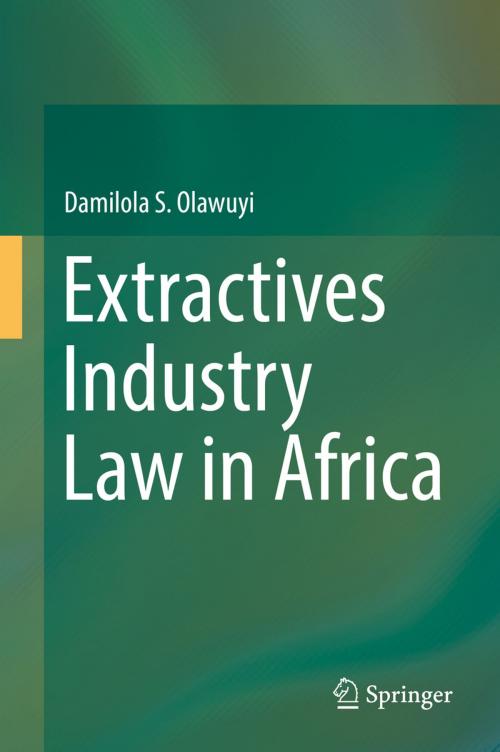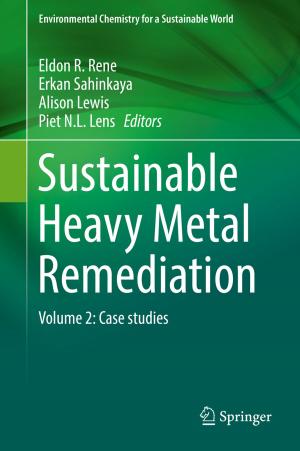Extractives Industry Law in Africa
Nonfiction, Reference & Language, Law, International, Social & Cultural Studies, Political Science| Author: | Damilola S. Olawuyi | ISBN: | 9783319976648 |
| Publisher: | Springer International Publishing | Publication: | September 11, 2018 |
| Imprint: | Springer | Language: | English |
| Author: | Damilola S. Olawuyi |
| ISBN: | 9783319976648 |
| Publisher: | Springer International Publishing |
| Publication: | September 11, 2018 |
| Imprint: | Springer |
| Language: | English |
The book provides a systematic examination of the legal, fiscal and institutional frameworks for the commercial development of petroleum and solid mineral resources in Africa. First, it considers the values, assumptions, and guiding principles underpinning legislation and governance in Africa’s extractive sector. It then provides detailed and comparative evaluations of regulatory frameworks, pricing, local content, procurement, sales, and contractual arrangements across African extractive industries. Further, the book assesses how questions of business and human rights risks, accountability, corporate social responsibility, waste and pollution control, environmental justice, and participatory development have been addressed to date, and how they could be addressed better in the future.
Enhancing readers’ understanding of the geography, sources and scope of extractive resources in Africa, the book explains how corporations can effectively identify, mitigate and prevent legal and business risks when investing in African extractive industries. Lastly, it discusses the innovative legal strategies and tools needed to achieve a sustainable and rights-based extractive industry.
Written in a user-friendly style, the book offers a valuable resource for corporations, investors, environmental and human rights administrators, advocates, policymakers, judges, international negotiators, government officials and consultants who advise on, or are interested in, petroleum and solid mineral investments in Africa. It also offers students and researchers an authoritative guidebook to the current state of extractive industry laws and institutions in Africa. Numerous examples of how international legal norms could be used to help revitalize the underlying legal and fiscal regimes in African extractive industries – to make them more robust, accountable, sustainable and rights-based – round out the coverage
The book provides a systematic examination of the legal, fiscal and institutional frameworks for the commercial development of petroleum and solid mineral resources in Africa. First, it considers the values, assumptions, and guiding principles underpinning legislation and governance in Africa’s extractive sector. It then provides detailed and comparative evaluations of regulatory frameworks, pricing, local content, procurement, sales, and contractual arrangements across African extractive industries. Further, the book assesses how questions of business and human rights risks, accountability, corporate social responsibility, waste and pollution control, environmental justice, and participatory development have been addressed to date, and how they could be addressed better in the future.
Enhancing readers’ understanding of the geography, sources and scope of extractive resources in Africa, the book explains how corporations can effectively identify, mitigate and prevent legal and business risks when investing in African extractive industries. Lastly, it discusses the innovative legal strategies and tools needed to achieve a sustainable and rights-based extractive industry.
Written in a user-friendly style, the book offers a valuable resource for corporations, investors, environmental and human rights administrators, advocates, policymakers, judges, international negotiators, government officials and consultants who advise on, or are interested in, petroleum and solid mineral investments in Africa. It also offers students and researchers an authoritative guidebook to the current state of extractive industry laws and institutions in Africa. Numerous examples of how international legal norms could be used to help revitalize the underlying legal and fiscal regimes in African extractive industries – to make them more robust, accountable, sustainable and rights-based – round out the coverage















